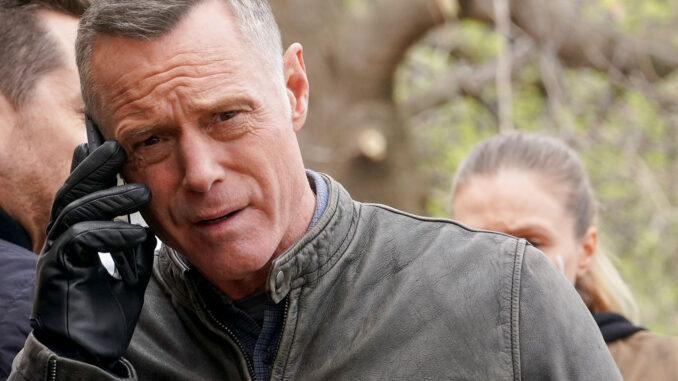
Chicago Fire first introduced Detective Hank Voight, fans quickly found themselves torn between admiration and suspicion. As the leader of the Intelligence Unit, Voight’s unorthodox methods and morally ambiguous actions raised many questions about his true nature. One of the most compelling aspects of Voight’s character was the tension between him and Firehouse 51, particularly with Matt Casey, who despised the detective from the very beginning. But was Voight really a dirty cop, or were his methods simply misunderstood?
Voight’s Reputation and the Tension with Firehouse 51
From the outset of Chicago Fire, Hank Voight was portrayed as a man with questionable ethics. As head of the Intelligence Unit, he didn’t hesitate to bend, and at times outright break, the rules to get results. His willingness to cross lines to bring criminals to justice made him a polarizing figure, not just in the world of law enforcement, but also among those in the firehouse.
Firehouse 51, a tight-knit team of firefighters and paramedics, had its own moral code, one that focused on helping people and doing the right thing—values that often clashed with Voight’s more flexible approach to justice. Matt Casey, the respected lieutenant of Firehouse 51, found himself at odds with Voight from the start. His intense dislike for the detective was rooted in a deeply personal experience—one that set the stage for their contentious relationship throughout the series.
Matt Casey’s Personal Grudge Against Voight
In Season 1 of Chicago Fire, we learn that Matt Casey’s hatred for Voight goes beyond professional disagreements. Casey had firsthand experience with Voight’s brutal methods when the detective was involved in a case that hit too close to home. Voight had been known for using violence and manipulation to get information, which led to the death of a young boy who was connected to a case Casey was investigating. This loss was one of the driving factors behind Casey’s animosity toward Voight.
From Casey’s perspective, Voight’s actions were reckless and ultimately cost innocent lives. The detective’s willingness to break the law to achieve his goals struck Casey as not only wrong but also dangerous. This deep-seated personal conflict created an ongoing tension between the two men, with Casey often clashing with Voight’s methods, especially when they came into direct contact with the firehouse team.
Was Voight Really a Dirty Cop?
The question of whether Voight was truly a “dirty cop” is a complicated one. On the surface, his actions certainly seemed to point in that direction. His ability to operate outside the law, often using intimidation and violence, made him a figure many saw as corrupt. However, Voight’s motivations were often rooted in his desire to protect the greater good, albeit through morally gray means.
In his eyes, the ends justified the means. While this approach was troubling to many, including Casey and Firehouse 51, it was clear that Voight’s primary objective was to take down criminals and keep the city safe. His unorthodox methods weren’t always popular, but they were effective. Voight was a man willing to do whatever it took to get results, even if it meant going against the very rules he was supposed to uphold.
The Firehouse 51 Perspective
From the point of view of Firehouse 51, however, Voight’s methods were seen as reckless, dangerous, and, at times, morally indefensible. The firehouse team, led by Casey, worked in an environment where teamwork, trust, and doing what’s right were paramount. When someone like Voight, who operated in the shadows and relied on violence, entered their world, it created a sense of unease and distrust.
Casey’s disdain for Voight was rooted in more than just professional differences. The loss of the young boy, combined with Voight’s disregard for human life in the pursuit of justice, was a hard pill to swallow for the firefighter. For Casey, it wasn’t enough to just get the job done—it had to be done the right way, with integrity. Voight, to him, represented everything that was wrong with the justice system.
Voight’s Evolution: A Complex Character
As Chicago Fire progressed, Voight’s character evolved. While he remained a morally ambiguous figure, his role in the larger Chicago universe also became more nuanced. His relationship with Firehouse 51, particularly with Casey, became less antagonistic, though it never fully healed. Voight’s actions often showed that, despite his ruthless methods, he did have a sense of loyalty and a desire to protect those he cared about, even if that meant taking extreme measures.
Over time, both Voight and Casey came to understand each other more, albeit from a distance. Their mutual respect grew as they worked together in situations that required them to put their differences aside for the greater good. Voight, however, never fully abandoned his controversial methods, and Casey never truly reconciled with the detective’s approach to justice. The tension between the two remained a key dynamic in the series.
Final Thoughts
The tension between Matt Casey and Hank Voight in Chicago Fire Season 1 was a central theme that set the stage for many of the show’s future conflicts. While Voight was often seen as a “dirty cop” due to his willingness to break the law for what he believed was the greater good, his character was far more complex than simply being a villain. For Casey and Firehouse 51, however, Voight’s actions represented a moral line they couldn’t cross.
In the end, the conflict between these two characters highlighted the show’s deeper themes of justice, loyalty, and doing what’s right, even when the lines between right and wrong are blurred. Voight’s actions may have been controversial, but they also served to challenge the characters around him, making Chicago Fire a more dynamic and compelling show as it explored the gray areas of morality and the human condition.
